If you’re a fan of zesty citrus flavors with a smooth, creamy texture, then lemon curd is about to become your new best friend. This versatile and tangy spread can add a bright burst of sunshine to a variety of dishes. Whether you’re spreading it on toast, filling a tart, or layering it in desserts, homemade lemon curd is a must-have in your recipe repertoire.
What Is Lemon Curd?
Lemon curd is a luscious, tangy custard-like spread made with lemons, sugar, butter, and eggs. It’s smooth, rich, and bursting with citrus flavor, offering the perfect balance between sweet and tart. Though traditionally served with scones or used in tarts, lemon curd can be enjoyed in countless creative ways.
Key Ingredients in Homemade Lemon Curd
Making lemon curd is all about simple, fresh ingredients:
- Lemons: The star of the show. Freshly squeezed lemon juice and zest add bright, tangy flavor. Avoid bottled lemon juice, as it won’t give the same vibrant taste.
- Sugar: This balances the tartness of the lemons, making the curd deliciously sweet but not overwhelming.
- Eggs: They create the thick, custard-like texture that makes lemon curd so rich and creamy.
- Butter: Adds a velvety smoothness and richness to the curd, enhancing its luxurious feel.
Recipes that Use Lemon Curd
Now that you’ve made your own lemon curd, you might be wondering how to use it. Here are some delicious ideas:
- Spread on toast or scones for a refreshing citrus twist on breakfast.
- Fill pastries like lemon tarts, eclairs, or cream puffs.
- Layer it in desserts such as trifles, parfaits, or pavlovas.
- Mix it into yogurt or spread on pancakes and waffles for a zesty flavor boost.
- Swirl it into ice cream or use it as a filling in cakes and cupcakes.
How to make Lemon Curd
- Whisk the eggs and sugar together in a medium-sized heatproof bowl until fully combined.
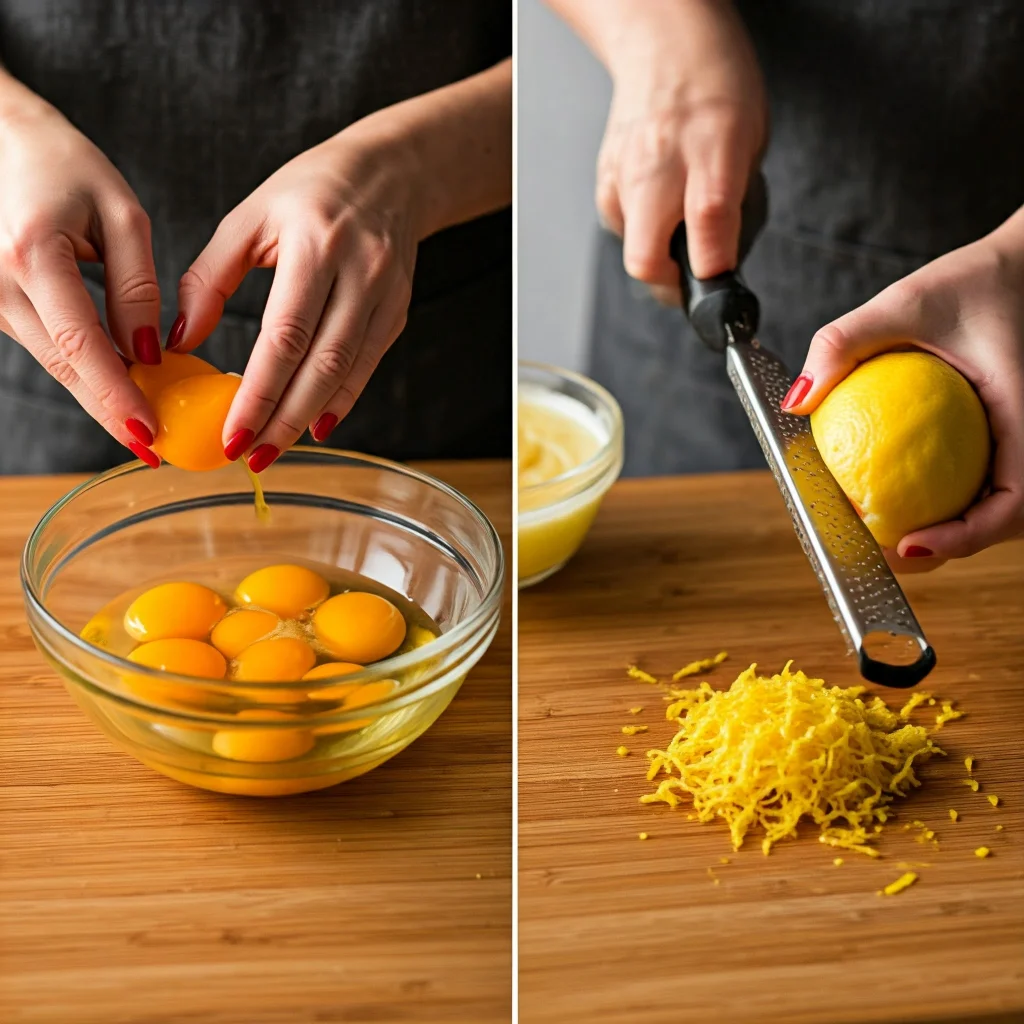
- Add the lemon juice and zest, stirring continuously.
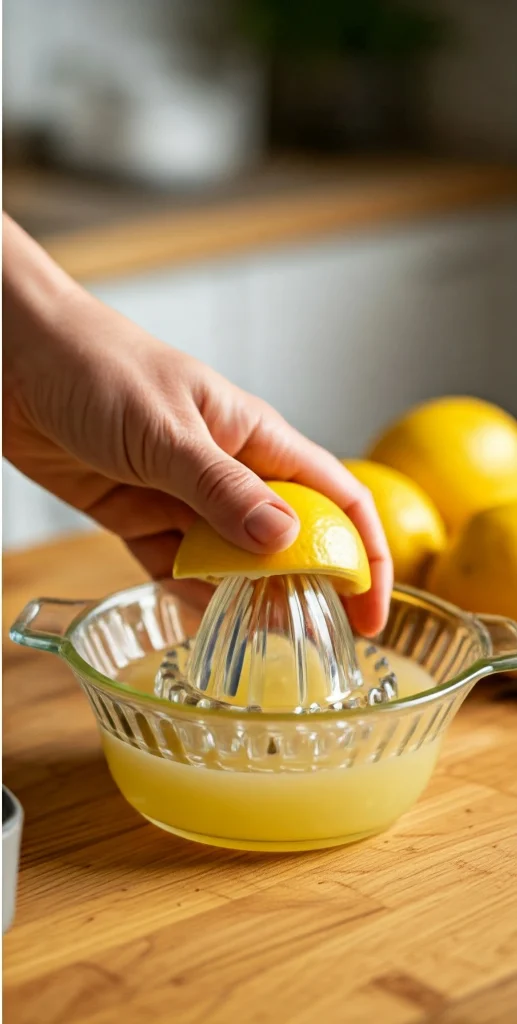
- Place the bowl over a pot of simmering water (double boiler method) and cook gently, whisking constantly until the mixture thickens, about 10 minutes. You’ll know it’s done when it coats the back of a spoon.
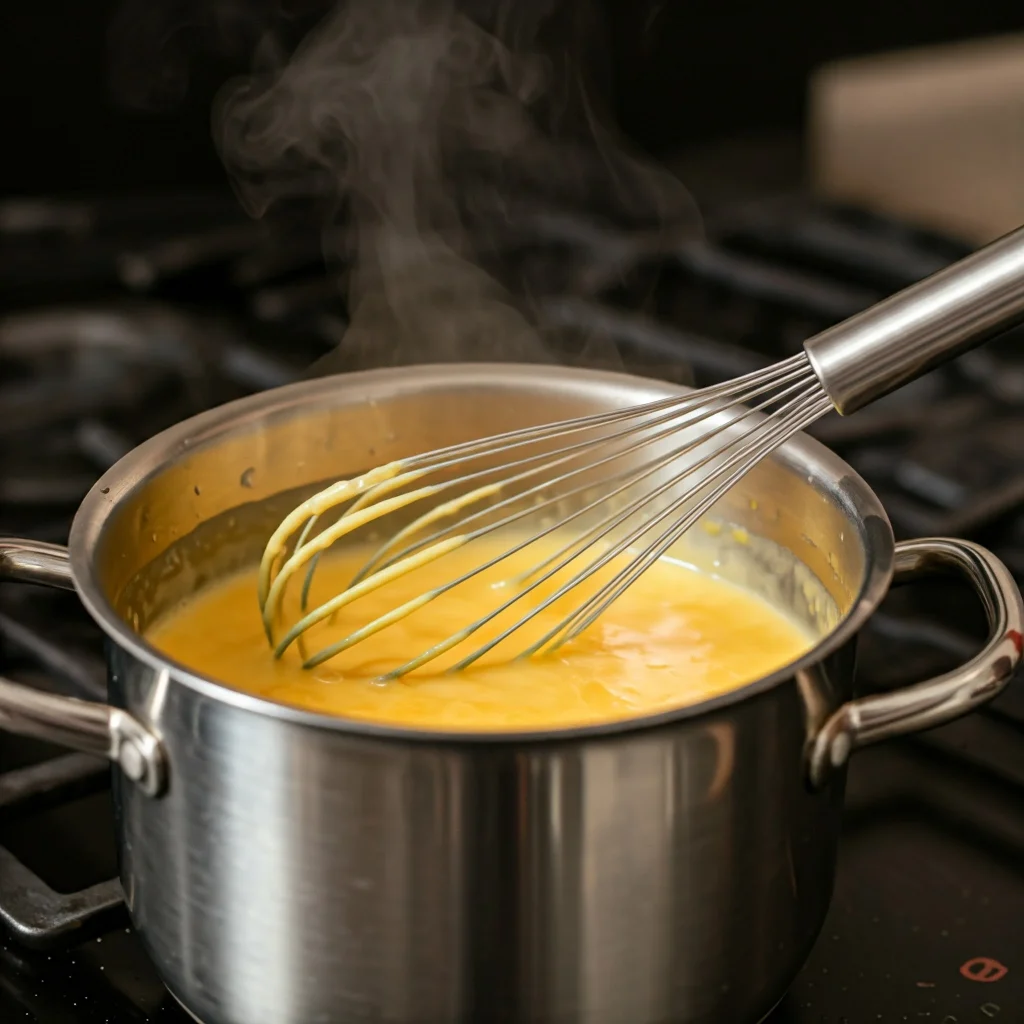
- Remove from heat and whisk in the butter, a few pieces at a time, until fully incorporated and the curd is silky smooth.
- Strain the curd through a fine mesh sieve to remove any zest or cooked egg bits, leaving you with a perfectly smooth texture.
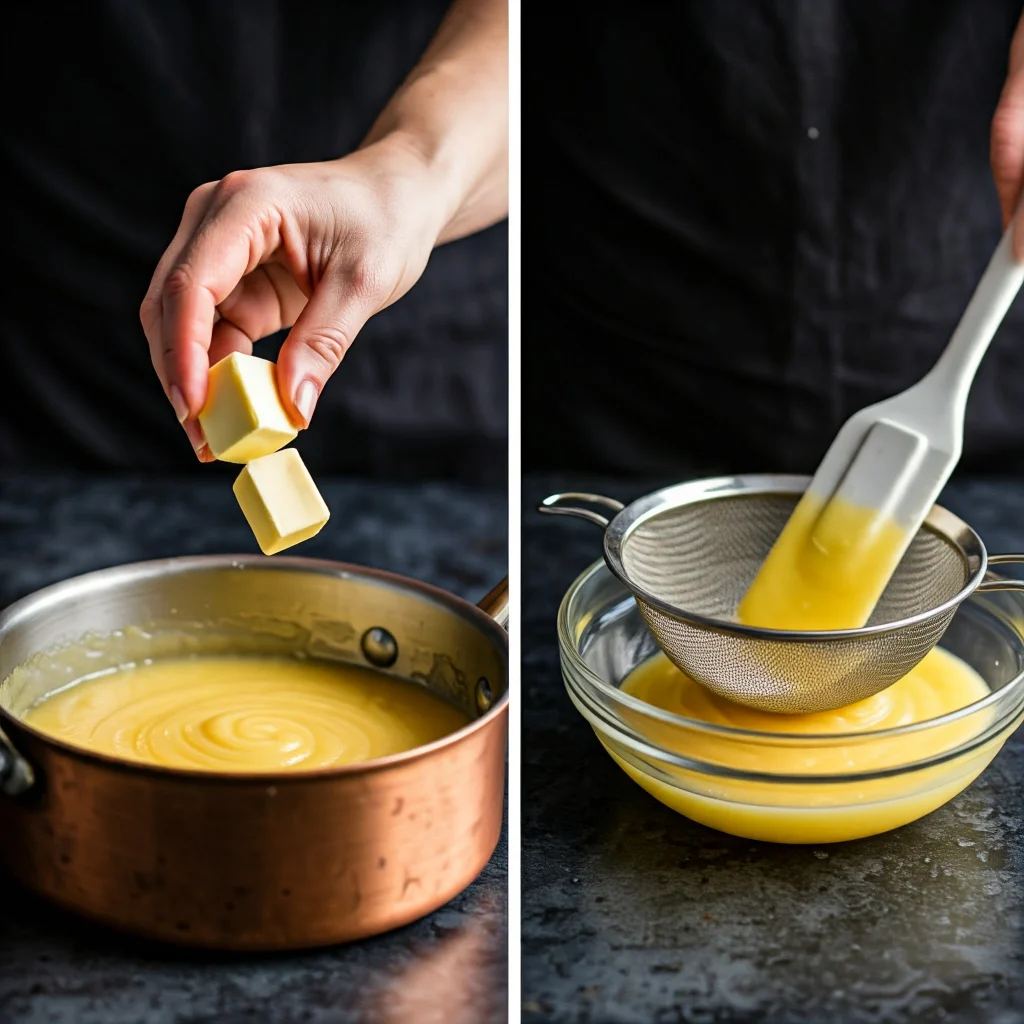
- Allow the curd to cool slightly, then transfer it to a clean jar. Refrigerate for at least 2 hours before serving.

Pro Tips
- Use fresh lemons: For the best flavor, always opt for fresh lemons rather than bottled juice. The zest and juice from fresh lemons provide that unbeatable tanginess.
- Low and slow: When cooking the lemon curd, patience is key. Keep the heat low and stir continuously to avoid curdling the eggs.
- Strain the curd: For a perfectly smooth finish, strain the curd to remove any bits of zest or cooked egg.
- Store it properly: Keep lemon curd in an airtight container in the fridge for up to two weeks, or freeze it for longer storage.
Frequently Asked Questions
1. Can I make lemon curd without butter?
Yes, you can make a dairy-free version by replacing the butter with a plant-based substitute, or you can simply omit it for a lighter curd.
2. How long does homemade lemon curd last?
When stored in the refrigerator in a sealed container, homemade lemon curd lasts about 1-2 weeks. For longer storage, freeze it for up to 3 months.
3. Can I use lime or orange instead of lemon?
Absolutely! You can use limes, oranges, or even a mix of citrus fruits to create variations of curd. Lime curd is especially delicious!
4. Why is my lemon curd runny?
If your lemon curd isn’t thickening, it may not have cooked long enough. Continue cooking it over low heat until it thickens to the right consistency.
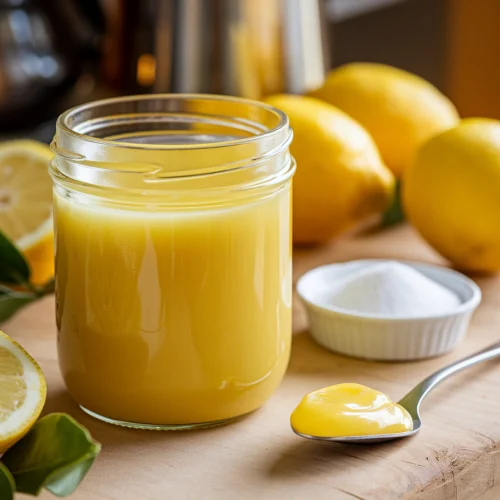
The Best Homemade Lemon Curd Recipe
Ingredients
- 6 large eggs
- 240 g (1 cup) freshly squeezed lemon juice (about 6-8 lemons)
- 200 g (1 cup) granulated sugar
- Zest of 6-8 lemons (finely grated)
- 113 g (½ cup) unsalted butter, cut into small pieces
- ¼ teaspoon fine sea salt
Instructions
Prepare a double boiler
- Set up a double boiler by filling a medium saucepan with a couple of inches of water. Bring the water to a simmer over medium heat. Place a heatproof bowl on top of the saucepan, making sure the bottom of the bowl does not touch the water.
Whisk together eggs and sugar
- In the heatproof bowl, whisk the 6 large eggs and 200g of sugar together until fully combined. The mixture should be pale yellow and slightly frothy. This will ensure the sugar is well incorporated and the curd will be smooth.
Add lemon juice, zest, and salt
- Stir in the 240g of freshly squeezed lemon juice, zest of 6-8 lemons, and ¼ teaspoon of fine sea salt. Continue whisking gently to mix everything together. The lemon zest will infuse the curd with more intense citrus flavor, while the salt balances the sweetness.
Cook over simmering water
- Place the bowl with the egg mixture over the simmering water. Cook the mixture, stirring constantly with a whisk or silicone spatula to prevent the eggs from curdling. This process can take about 10-15 minutes. Be patient—this slow cooking ensures a smooth and creamy texture.
- You’ll know the lemon curd is ready when it thickens and coats the back of a spoon. To test, dip a spoon into the curd and run your finger along the back of it; if the line holds, the curd is done.
Incorporate the butter
- Once the lemon curd has thickened, remove the bowl from the heat. While the curd is still hot, slowly whisk in the 113g of unsalted butter, a few pieces at a time, until fully melted and the mixture becomes silky and glossy. The butter adds richness and a smooth texture to the curd.
Strain for a smooth texture
- To achieve a perfectly smooth lemon curd, strain the mixture through a fine-mesh sieve into a clean bowl. This step will remove the lemon zest and any bits of cooked egg that might have formed. Use a spatula to gently push the curd through the sieve.
Cool and store
- Once strained, let the lemon curd cool slightly at room temperature. Then, transfer it to a clean, airtight jar or container. Allow it to chill in the refrigerator for at least 2 hours before using. This resting time helps the curd set and develop its flavors further.
Notes
Pro Tips:
- Whisk constantly: Stirring continuously while cooking prevents the eggs from scrambling and ensures a smooth, lump-free texture.
- Use fresh lemons: Freshly squeezed lemon juice and zest give the curd a vibrant, natural flavor that bottled juice can’t replicate.
- Don’t rush the cooking process: Cooking the curd slowly over low heat is key to achieving the perfect thickness without curdling the eggs.
- Strain for smoothness: Straining the curd is optional but highly recommended for a professional, silky result.
Storage:
- In the fridge: Store your homemade lemon curd in an airtight container in the refrigerator for up to 2 weeks.
- In the freezer: If you’d like to keep it longer, lemon curd can be frozen for up to 3 months. Be sure to thaw it in the refrigerator overnight before using, and give it a good stir to bring back its smooth consistency.



